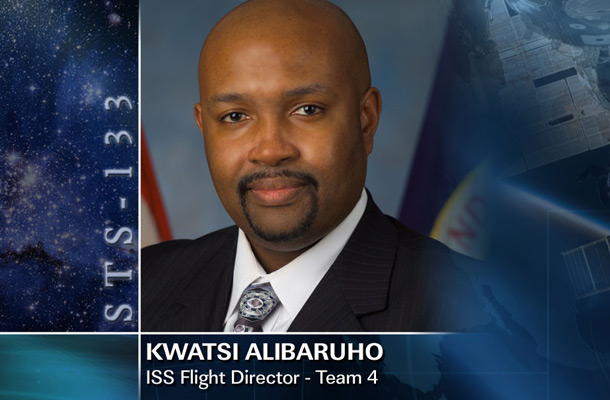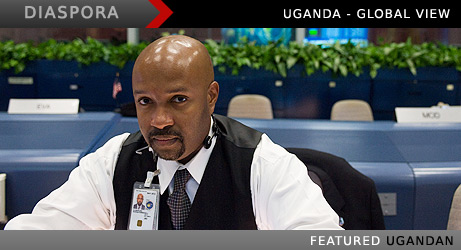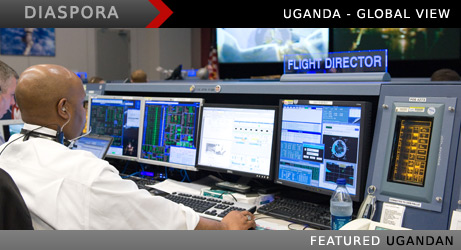NASA’s 1st Black Mission-Control Flight Director is UGANDAN

The first African-American to lead Mission Control is working shifts as a flight director for the International Space Station. Kwatsi Alibaruho completed more than 700 hours of training and began active duty in August.
Since the beginning of America’s space program,only 58 people have directed human space flight missions. The flight director class of 2005 is the second largest ever appointed and the most diverse.
The nine-member group also includes three women and two Hispanics.
Leading a team of flight controllers, support personnel and engineering experts, a flight director has the overall responsibility to manage and carry out space shuttle flights and International Space Station expeditions. A flight director also leads and orchestrates planning and integration activities with flight controllers, payload customers, space station partners and others.

“I’m humbled and honored to serve in the capacity of flight director,” said Alibaruho,who spent his childhoodin Oakland, Calif., and Atlanta. “I love the diversity of challenges inspace exploration and in mission operations,” he added. Alibaruho’s father, economist Dr.George Alibaruho, is from Uganda, while his mother, Dr. Gloria Alibaruho, is from Macon, Ga. Several of his siblings also were born in Uganda.
“I caught the ‘science bug’ very early from watching science fiction programs, and I wanted to learn about real science,” Alibaruho said. Every chance he had, he signed up for extracurricular activities and seminars where he dedicated weekends and summers to further his knowledge of science and engineering.
Alibaruho earned a bachelor’s degree in avionics from the Massachusetts Institute of Technology, Cambridge, Mass. Despite his intense interest in science, he never thought of working at NASA until an opportunity arose through the cooperative education program at NASA’s Johnson Space Center in Houston.

As a full-time NASA employee, Alibaruho became certified as a flight controller and accepted increasing levels of responsibility. He was deputy chairman of the Orbital Space Plane Source Evaluation Board’s operations committee, and immediately before his selection as a flight director was group lead for the International Space Station Life Support Systems Group. He already has logged 2,850 hours of experience working in Mission Control.
He said he looks forward to the challenges ahead while NASA pursues exploration to the moon, Mars and beyond as part of the Vision for Space Exploration.
“There is nothing about my job that is routine,” Alibaruho said, “There is something unique and challenging to hold my interest every day. I’m excited about the prospect of working on new projects and going through the process of figuring out how to do long-duration space exploration missions,” he added.
NASA embraces diversity as a leadership philosophy and management practice geared toward maximizing potential at the individual level and facilitating high performance at the organizational level. The agency is committed to advancing a workplace culture that promotes open communication and encourages new ideas and perspectives to achieve the Vision for Space Exploration.

